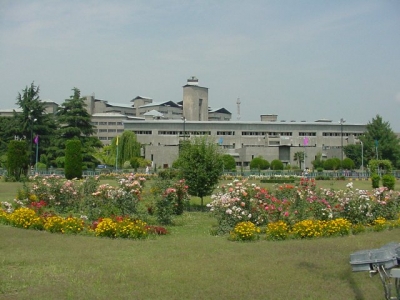Dr. Bashir A Dabla
In a story about migrant pundits (published in kashmirLife dated April 2, 2011) a Kashmiri Pandit retired government teacher based in Muthi migrant camp in Jammu reacted to the government’s rehabilitation plan by saying that “on one side, government is making big claims and promises on the return of KPs to the Valley, and on other side, they are spending thousands of crores of rupees for making a township in Jammu.” He continued, “If government wants Pandits’ return to the valley and live peacefully as they lived before 1990, they would have to come up with a township in Kashmir valley and settle Pandits there. It would have been a welcome move.”
This response reveals the contradiction in the government policy and irrational approach of the KPs at community level.
The governments of J&K and India follow the policy with opposite objectives and strategy. Though these governments claim to be committed to return of all migrant KPs, no background social and political work is done in this regard. On the other hand, it goes on constructing permanent flats for KP migrants in different areas of Jammu.
Second, the KPs, at the community level, show contradictory approach. The community lacks a consensus-based approach towards their problems, especially their return to the valley. While they claim that all of them intend to return, they demand and own permanent flats in new townships. That is the contradiction KP migrant has highlighted. His logic is simple that these townships should have been constructed in the valley, which would have helped in establishing the pre-1990 community relationship in the valley.
A sociological assessment study on life conditions in migrant camps in Jammu in 2004 observed that while elder generation of migrant KPs has some interest in returning, its younger generation think differently mainly because economic interests are heavier than cultural and emotional ties.
The question is whether getting back KPs and settling them in cluster settlements in isolation is purposeful. Experience has shown that putting them in separate social clusters under the direct physical presence of security forces proves counter-productive and harmful for composite social and cultural life of Kashmir. It may negate the very purpose of their return. It also leads to certain degree of antagonism and conflict. At the most it will serve the interests of few and not of the community and will hurt the interactive social environment between two local communities.
In this context, the following few points can be desirable. First, new social, political, economic and other realities which emerged after 1989 have to be accepted by all. This irreversible change reflects in attitudes and behaviour of new generation in Kashmir which needs to be involved in the process of “reverse” migration.
Second, the KP settlements in Kashmir must not look as “colonies under siege” and “separate social-living clusters”. These townships must become the bridges of social harmony, cultural integration and social understanding.
Third, the governmental as well as non-governmental efforts need to be initiated seriously for making the back-migration a meaningful and productive exercise. Finally, there must social goodwill and social reciprocity among all people of the valley.















